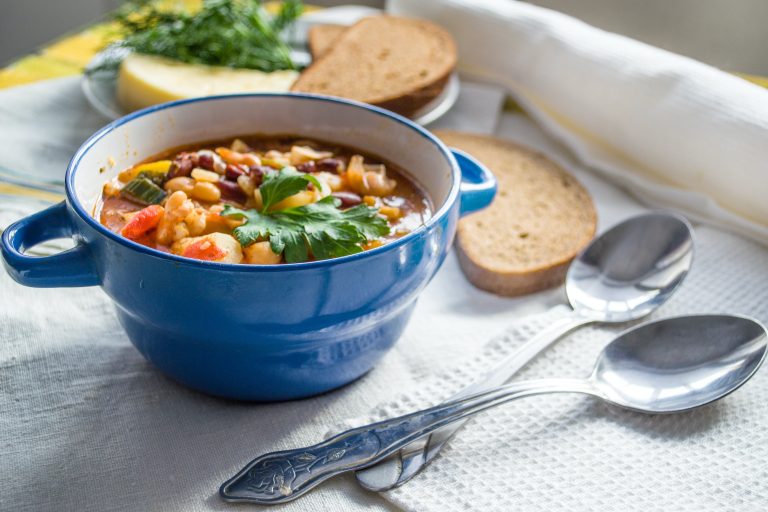Welcoming a Healthy 2024!

As we welcome in the new year, many of us are working on our New Year’s resolutions. Some of the most popular resolutions include exercising more, eating healthier, and losing weight. Unfortunately, recent research shows that only about 9% of people who make resolutions report they were able to keep them. About 23% of people quit by the end of the first week of the new year and 64% quit by the end of the first month.
Despite good intentions, people often fail at keeping their resolutions for several good reasons:
- Change is hard. The decision to make a resolution should be based on a readiness to make change, not simply based on a yearly tradition of making resolutions.
- There will be obstacles. The best strategy is to anticipate obstacles and plan for ways to deal with them. Consider writing a list of potential obstacles and possible coping strategies.
- Grandiose resolutions can make you feel defeated from the start. As previously mentioned, change is hard. If your resolutions are too big, they might seem unattainable. Instead, resolutions should be broken down into smaller steps so that you can acknowledge and celebrate your progress along the road to bigger change.
- Losing track of your progress can make it more likely you will return to your old ways. Research shows that people who track their progress in writing or stay accountable to a friend, a group (like an exercise class), or a tracking app, are more successful at making lasting change.
Rethinking resolutions: adding versus taking away. This approach is more positive and is less about restriction and deprivation.
Add more fruits and vegetables throughout the day. Make half your plate colorful at every meal with delicious, antioxidant-rich fruits and veggies. Add fruit to your cereal or yogurt; put spinach and tomato in your eggs; snack on veggies with hummus or an apple with peanut butter; add a side salad to your dinner; an put some extra veggies or beans in your pasta sauce or soup. Snack on your own homemade trail mix made of nuts and dried fruit.
Move more every chance you get. Being sedentary can increase the risk for chronic disease and any activity is good activity, whether it is considered “exercise” or not. If you can, take the stairs instead of the elevator; park a bit further away whenever possible to get some extra steps; lift hand weights while watching a favorite tv program; stand up periodically throughout the day and stretch or march in place; or go for a daily walk.
Sleep more each night. Since many of us are not getting the recommended 7-8 hours of sleep each night, this is another thing we can add. Sleep is essential to good health, and not getting enough can affect your appetite, blood sugars, stress level, memory, concentration, and mood, among other things. Maintain a consistent sleep schedule; keep your room dark and cool; take a break from smartphones and tablets, television, and computer screens for at least 30 minutes before bedtime; avoid alcohol and heavy foods close to bedtime; and establish a relaxing bedtime routine
Eat more fiber: More whole grain breads, crackers, and pastas; brown rice and quinoa; beans, peas, and legumes; and more fruits and vegetables. Fiber can help reduce cholesterol; regulate blood sugar; control appetite; and reduce the risk of chronic disease. In addition, foods that are high in fiber are also loaded with vitamins and minerals and help to increase your satiety.
Friendships are additive and enrich your life. Having friends prevents feelings of loneliness and isolation but, more importantly, it adds meaning to your life experiences. The sense of belonging and acceptance friends offer can help increase happiness and reduce stress. Having someone who is there for you who wants you to be there for them is invaluable.
Try this easy, tasty soup that’s loaded with vegetables and fiber. Perfect for a cold winter day!
Bean and Barley Soup
adapted from eatingwell.com
Yield: 4 servings
Ingredients
- 4 teaspoons olive oil
- 1 large onion, chopped
- 1 medium fennel bulb, cored and chopped
- 5 cloves garlic, minced
- 1 teaspoon dried basil
- 1 (15 ounce) can cannellini or other white beans, rinsed
- 1 14-ounce can fire-roasted diced tomatoes
- 6 cups low-sodium vegetable broth
- ¾ cup quick-cooking barley
- 1 (5 ounce) package baby spinach (6 cups) or about ½ package frozen spinach
- ¼ cup grated Parmesan cheese
- ¼ teaspoon ground pepper
Directions
- Heat oil in a Dutch oven over medium-high heat. Add onion, fennel, garlic, and basil; cook, stirring frequently, until tender and just beginning to brown, 6 to 8 minutes.
- Mash 1/2 cup of the beans. Stir the mashed and whole beans, tomatoes, broth and barley into the pot. Bring to a boil over high heat. Reduce heat to medium and simmer, stirring occasionally, until the barley is tender, about 15 minutes. Stir in spinach and cook until wilted, about 1 minute. Remove from the heat and stir in cheese and pepper.
Tip: If you are unable to find fennel bulb, you can substitute some celery and a pinch of dried fennel seeds (for the characteristic licorice flavor or fennel).